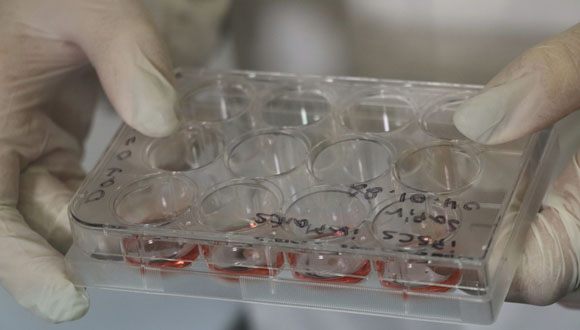Article: "TAU Breakthrough Offers New Hope to Help People With Paralysis Walk Again"
February 3, 2022

Researchers from Tel Aviv University successfully engineered the world’s first 3D human spinal cord tissue transplant. The implant method is designed to separate cells from the extracellular matrix of a sample of a patient’s belly fat. The cells are then reprogrammed using genetic engineering to behave as embryonic stem cells, while the extracellular matrix is made into a hydrogel to avoid an immune response or rejection upon implantation.
The study implanted the engineered tissues into lab models reflecting either acute or long-term paralysis, demonstrating a high rate of success in both groups: 100% of acute models and 80% of chronic models were restored with the ability to walk. Clinical trials in human patients could start in a few years’ time. Though paralysis from spinal cord injury has long been untreatable, scientists hope their technology will help paralyzed patients walk again.
To read the full article, click here: https://english.tau.ac.il/news/artificial-spine
*Image used is from the original news article published by Tel Aviv University. Petri dish with tissue samples (Photo: Sagol Center for Regenerative Biotechnology)
